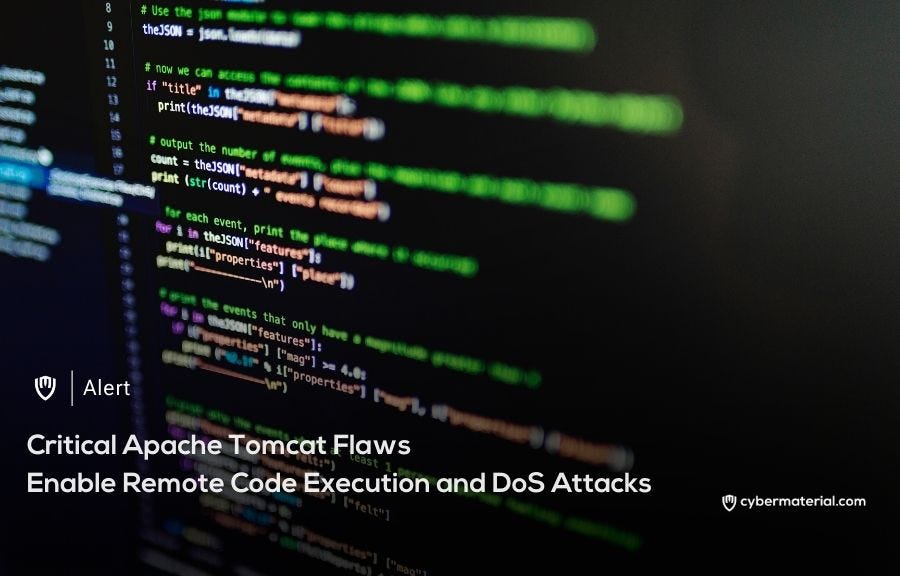
Two critical vulnerabilities have been discovered in Apache Tomcat, a popular open-source web server and servlet container, which could allow attackers to execute remote code or cause denial-of-servi…

Two critical vulnerabilities have been discovered in Apache Tomcat, a popular open-source web server and servlet container, which could allow attackers to execute remote code or cause denial-of-servi…